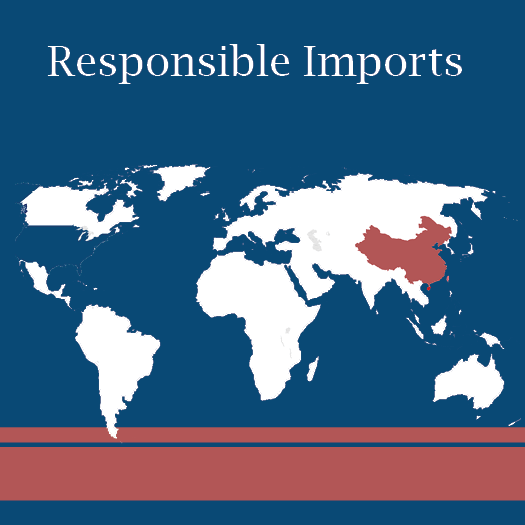
As the epidemic of African Swine Fever (ASF) spreads throughout China, it raises animal welfare and economic issues for the swine industry in China and the United States.
Classified as a foreign animal disease, ASF in the United States would immediately stop the export of pork products, costing the United States economy $16.5 billion dollars in the first year.
In recent studies, African Swine Fever Virus (ASFV) has been detected in livestock feed ingredients in China, Ukraine and Russia and the virus can transfer to pigs following consumption of the contaminated feed. It is also documented the virus can survive for at least 30 days in ingredients imported from China. Due to the approximately 2 million metric tons of agricultural products the United States imports from China annually, there is no guarantee the virus will remain out of the United States.
Using a science-based approach, we can develop import requirements and complete audits to safely introduce products from countries of high concern. Plant and warehouse auditing needs to be completed to ensure safe quality pork.
Pipestone responsible imports has been advocated across the swine industry and is utilizing the following factors when considering whether to import essential feed ingredients:
- Necessity: is it necessary?
- Alternatives: can the ingredient be obtained from a country free of disease
- Virus: which virus is causing the concern?
- Viral half-life: is there published information on the half-life of the virus in the designated ingredient
- Transport time: what is the projected time for delivery of the ingredient from the source to its destination?
- Viral load: are their safe products that can be added to the ingredient to reduce viral load during transport?
- Storage period: is there published information on storage time and temperature that will eliminate residual virus from the ingredient prior to use?
The risks associated with imported feed ingredients are not a swine-specific concern. Besides the adaption against ASFV in US pork production, Canada and Australia have developed a similar principle through a National Program.
To meet the challenge of stopping the entrance of ASFV into the United States, we must work together to ensure the safety of essential feed ingredients are imported. PIPESTONE is working with SAM Nutrition to pioneer the safe entrance of vitamins, trace minerals and amino acids from China to the USA.
For more information on Pipestone Responsible Imports, please reach out to any of the following individuals:
Scott Dee, DVM, MS, PhD, Dipl. ACVM
Director of Research, Pipestone Research
scott.dee@pipestone.com
Roger Cochrane, PhD
Feed Mill Director, Pipestone Nutrition
roger.cochrane@pipestone.com
Arkin Wu, PhD
Nutrition Coordinator, Pipestone Nutrition
arkin.wu@pipestone.com
To read more about Pipestone Responsible Imports, please read the following:
Risks to animal health associated with imported feed ingredients. Gilbert Patterson, Megan Niederwerder, Scott Dee. Published April 1, 2019. JAVMA volume 254 No. 7
